A bizarre legacy of the drug war in Columbia is the presence of hippopotami that were brought to Columbia by infamous (and long dead) drug lord Pablo Escobar. Their population is growing and they are starting to leave the luxurious estate that Escobar built at the height of his power. If they become established in the wild, ecological disaster could ensue (and we think invasive species like House Sparrows are bad) so Columbia recently had a hippo hunt, which did not go over well with some animal rights folks. Any other ideas out there as to how to handle the hippos?
Recent Posts
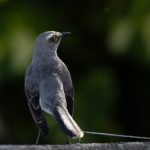 The Stigma of “Common” Birds, and Why It Never Quite Holds UpBy Fitzroy Rampersad
The Stigma of “Common” Birds, and Why It Never Quite Holds UpBy Fitzroy Rampersad The Seabirds of Greenland: A Book ReviewBy Donna
The Seabirds of Greenland: A Book ReviewBy Donna Bird Guides of the World: Luis Gonzalez, Miami, Florida, USABy Editor
Bird Guides of the World: Luis Gonzalez, Miami, Florida, USABy Editor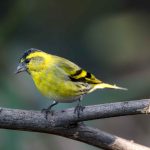 Birding Shanghai in December 2025By Kai Pflug
Birding Shanghai in December 2025By Kai Pflug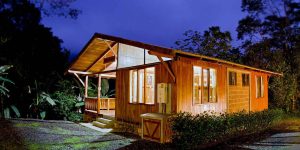 Birding Lodges of the World: Umbrellabird Lodge – Reserva Buenaventura, EcuadorBy Editor
Birding Lodges of the World: Umbrellabird Lodge – Reserva Buenaventura, EcuadorBy Editor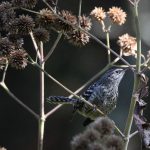 On the WallBy Paul Lewis
On the WallBy Paul Lewis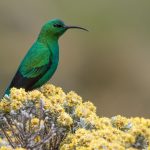 Three Photos: Sunbirds of Cape TownBy Editor
Three Photos: Sunbirds of Cape TownBy Editor
Posting Calendar
| DAY | WRITER(S) | SERIES (weekly) |
|---|---|---|
| MON | Kai (w) | Birding Lodges |
| TUE | Donna (m) Susan (m) Hannah (m) Fitzroy (m) Grace (m) | Bird Guides |
| WED | Leslie (bw) Faraaz (bw) | Ask a Birder |
| THU | Paul (w) Cathy (bw) | Birder’s Lists |
| FRI | David (w) | Species Spotlight |
| SAT | Peter (bw) Luca (bw) | From the Archives |
| SUN | Clive (w) Sanjana (m) | Three Photos |
| w weekly, bw biweekly, m monthly | ||
| Any time: Jason, Mark, John, Sara, Rolf, Dragan | ||
See here for info on the writers.
Newsletter
Signup and receive notice of new posts!
Thank you!
You have successfully joined our subscriber list.




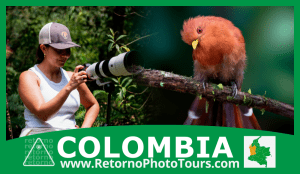

Good grief. I had heard about Escobars pets but had no idea they were breeding. I am with the authorities in this case – hippos are not the sort of creature you want to meet unexpectedly. Are these the largest invasive species in the world?
What an irony! Perhaps Colombia can export them back to Africa because hippos are being slaughtered at an ever increasing rate throughout that continent.
If you read the book “The song of the dodo: island biogeography in an age of extinctions”,
by David Quammen (http://books.google.com/books?id=AIrLGYTRMP0C&q=island+biogeography&dq=island+biogeography&ei=lymrSofPCIjSMuHj7ZwN&client=firefox-a), one of the chapters talk about conservation efforts of the Mauritius Kestrel, and how one of the conservation experts kill an introduced predator (weasel or mongoose, I’m not sure) trying to raid the falcon’s nest, by dashing it against the cliff (as they are precariously placed, and can’t carry the predator down). The Money Quote goes something like you’re an environmentalist if you can kill the predator, an animal lover otherwise. I think that in this case, environmentalism CLEARLY wins. While its sad for the hippo to be killed due to no fault of theirs, ignoring the risk they pose to Columbia’s environment is the far bigger crime.
I certainly not an expert, but just to add my two cents worth. As a student, in 1995 I had the chance to work with hippo capture in the Kirkwood area where Hippos were escaping from Addo’s Zuurberg area (it’s in the eastern Cape, South Africa.)
This is what I remember from what the park guys said:
1. Darting is problematic…If you are near water, the natural reaction of the hippo is to run to water. It means that it will probably drown and also means that any retrieval attempt could end up in conflict with other hippos. There is a possible solution…chase them away from the water with a helicopter. This is not an option if you are in areas with high human populations as hippos running around area seriously dangerous animals. In an open environment, this can at times work. It is expensive. It means using expert helicopter pilots and also purpose built retrieval vehicles.
2. If the hippos can be confined to an area, traps can be used. The capture team would need to put up electrical fencing around the area that the hippo is in, with as little grazing as possible. You need a team around it all the time as water and vegetation can cause problems with the fence. The fence around the hippo needs to be put up in one go, meaning it should be prepared on the posts before hand (leave it overnight, and the hippo will be gone after a day of disturbance.) The fenced in area needs to include as little feeding area as possible, so that the trap can be baited with food. Hippos are trap clever. A capture vehicle and team needs to be nearby to retrieve the hippo right away when it goes into the trap.
These options are both very expensive and the second one can take months. Like I said, these are just ideas I learned from others, but thought I would pass it on to get the ideas out.
Back then the park guys used this book:
The capture and care manual: capture, care, accommodation and transportation of wild African animals by MacKenzie, A.A. 1993, Pretoria, Wildlife Decision Support Services and The South African Veterinary Foundation
I would recommend getting hold of South African Parks Board. They have plenty of experts on the subject.